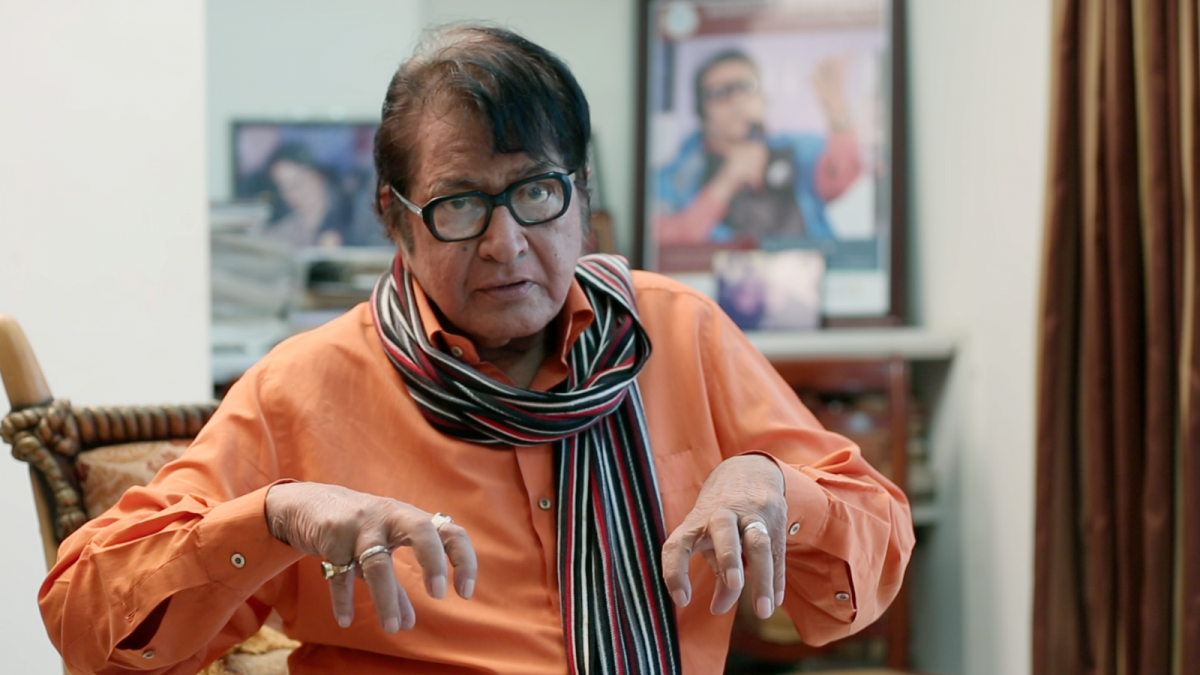
Is the Pandemic a Heyday for Unsung Heroes?
The film industry is mostly centred on stars. But often it is people like the sound re-recordist portrayed in the documentary The Sound Man Mangesh Desai who turn movies into unique audiovisual experiences. An essay on why the COVID-19 pandemic is a chance to rethink the inequalities of star-centrism.
→ Check all articles of this special
→ Download PDF with introduction and table of contents
The Hindi film industry has many unsung heroes: People whose contribution to films isn’t obvious to the average moviegoer since they don’t enjoy the same visibility as movie stars. They work behind the camera, or in a sound studio, where artistic excellence doesn’t meet with public adulation. While staying in the shadows, they make the movie-watching experience absorbing.
Mangesh Desai was a legend. As a sound re-recordist, his job involved blending song sequences, dialogue, background music, and aural effects. Between the 1950s and 1980s he left his imprint on hundreds of films, enriching the soundscape in ways that enhanced the drama on the big screen. Yet very few people outside the film fraternity knew of him. Had it not been for Subash Sahoo’s well-researched and engrossing documentary The Sound Man Mangesh Desai, the man credited with teaching the Hindi film industry the importance of silence would have become another footnote in history.
Imagine a Hindi Film without Music
The Indian film industry is obsessed with A-listers. Movies are mostly centered around lead actors, with the action, romance and heartbreak assuming centre stage. But behind every film, big or small, hit or flop, there is a silent army of unsung heroes at work: Lyricists, musicians, story and screenplay writers. They are integral parts of the film industry, catalyzing the biggest hits. Imagine a Hindi film without songs and music – or without electrifying dialogue to lift the most predictable of stories from the clutter of ordinariness.
The fame associated with stardom has always eluded those working behind the camera. Though awareness of their contributions has improved over the years, the pandemic has laid bare how vulnerable their lives are. Many of them have struggled to make ends meet since the lockdown brought film production to an abrupt halt. Now that shooting has resumed, mandatory social distancing means that only a fraction of the workforce is getting called to the sets.

Why the Film Industry Might Change
The coronavirus dealt a body blow to the film industry. Elaborate sets, dance sequences, and long shooting schedules might be a thing of the past. The rise of video streaming platforms has spawned a demand for niche content that caters to multiplex-goers who aren’t hung up on the elaborate spread of mainstream fare. Films are likely to be more austere and realistic, requiring less budget and manpower, due to the financial setbacks and new production guidelines brought about by the pandemic. For junior technicians it has become a question of survival, with many forced to take up pedestrian jobs like selling vegetables just to stay afloat.
The pandemic has forced a rethink. The industry needs to shed some of its single-minded devotion to stars and recast the spotlight on talents who remain mired in obscurity. It’s clear that, to bounce back, the industry needs its talented workers as much as the stars. This change in outlook will pave the way for reforms that can uproot entrenched practices promoting the worst forms of inequality.
The film «The Sound Man Mangesh Desai» by Subash Sahoo was officially selected at the Norient Film Festival NFF 2021. See full program here.
This text is part of Norient’s essay publication «Nothing Sounds the Way It Looks», published in 2021 as part of the Norient Film Festival 2021.
Bibliographic Record: Rhensius, Philipp. 2021. «Editorial: NFF 2021 Essay Collection.» In Nothing Sounds the Way It Looks, edited by Philipp Rhensius and Lisa Blanning (NFF Essay Collection 2021). Bern: Norient. (Link).
Biography
Links
Published on January 11, 2021
Last updated on April 09, 2024
Topics
Does a crematorium really have worst sounds in the world? Is there a sound free of any symbolic meaning?
Artistic endeavours aimed to certain tastes and norms of majorities.
Snap



